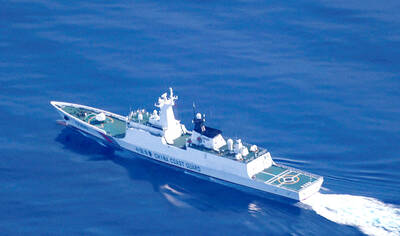An army of humanitarian organizations has been unable to end years of recurring hunger in conflict-torn Democratic Republic of the Congo.
Now a South American research group says it may have found another way to fill hungry bellies: with guinea pigs.
Better known as cute pets in Western nations, the small rodents could provide war-battered villages with “a much-needed source of protein and micro-nutrients in a country with some of the highest incidences of malnutrition in the world,” the Colombia-based agricultural research institute International Center for Tropical Agriculture (CIAT) said.
Congo’s hilly east has been plagued by violent turmoil since Rwanda’s 1994 genocide spilled war across the border, displacing millions of people and sparking years of skirmishes between soldiers, rebels and militias from both countries.
It is not known how or when guinea pigs — native to South America — arrived in Congo, but CIAT researchers discovered them last year being kept as “micro livestock” in the nation’s hard-hit North and South Kivu provinces, which border Uganda, Rwanda and Burundi.
“Small and easy to conceal, guinea pigs are well-suited to [Congo’s] conflict zones, where extreme poverty and widespread lawlessness means that the looting of larger domestic livestock is commonplace,” the group said.
The furry animals have other advantages: They can be fed kitchen waste and are a relatively low-cost investment compared to other livestock. Crucially, they reproduce quickly, with females giving birth to multiple litters that total between 10 and 15 offspring per year.
“They also suffer from fewer diseases than pigs, chickens and rabbits, and in the event of disease outbreaks, their high reproduction rate means populations have a much shorter recovery time,” the group said.
Guinea pigs are widely eaten in parts of South America, notably Peru. The taste of the rodent has been compared to pork, dark chicken meat and rabbit. The rodents are not a common sight in rural Congolese households, unlike chickens, goats and other domesticated animals.
CIAT scientists have been investigating ways to boost livestock production through a project funded by the German government which had originally targeted pork and poultry. It has now been expanded to include guinea pigs, with trials underway in four South Kivu villages to try to find ways to improve the quantity and quality of the meat.
“None of the scientists had contemplated guinea pigs as an option in [Congo] when the project started,” CIAT’s Michael Peters said. “Now they really could turn out to be indispensable.”

‘HYANGDO’: A South Korean lawmaker said there was no credible evidence to support rumors that Kim Jong-un has a son with a disability or who is studying abroad South Korea’s spy agency yesterday said that North Korean leader Kim Jong-un’s daughter, Kim Ju-ae, who last week accompanied him on a high-profile visit to Beijing, is understood to be his recognized successor. The teenager drew global attention when she made her first official overseas trip with her father, as he met with Chinese President Xi Jinping (習近平) and Russian President Vladimir Putin. Analysts have long seen her as Kim’s likely successor, although some have suggested she has an older brother who is being secretly groomed as the next leader. The South Korean National Intelligence Service (NIS) “assesses that she [Kim Ju-ae]

In the week before his fatal shooting, right-wing US political activist Charlie Kirk cheered the boom of conservative young men in South Korea and warned about a “globalist menace” in Tokyo on his first speaking tour of Asia. Kirk, 31, who helped amplify US President Donald Trump’s agenda to young voters with often inflammatory rhetoric focused on issues such as gender and immigration, was shot in the neck on Wednesday at a speaking event at a Utah university. In Seoul on Friday last week, he spoke about how he “brought Trump to victory,” while addressing Build Up Korea 2025, a conservative conference

China has approved the creation of a national nature reserve at the disputed Scarborough Shoal (Huangyan Island, 黃岩島), claimed by Taiwan and the Philippines, the government said yesterday, as Beijing moves to reinforce its territorial claims in the contested region. A notice posted online by the Chinese State Council said that details about the area and size of the project would be released separately by the Chinese National Forestry and Grassland Administration. “The building of the Huangyan Island National Nature Reserve is an important guarantee for maintaining the diversity, stability and sustainability of the natural ecosystem of Huangyan Island,” the notice said. Scarborough

DEADLOCK: Putin has vowed to continue fighting unless Ukraine cedes more land, while talks have been paused with no immediate results expected, the Kremlin said Russia on Friday said that peace talks with Kyiv were on “pause” as Ukrainian President Volodymyr Zelenskiy warned that Russian President Vladimir Putin still wanted to capture the whole of Ukraine. Meanwhile, US President Donald Trump said that he was running out of patience with Putin, and the NATO alliance said it would bolster its eastern front after Russian drones were shot down in Polish airspace this week. The latest blow to faltering diplomacy came as Russia’s army staged major military drills with its key ally Belarus. Despite Trump forcing the warring sides to hold direct talks and hosting Putin in Alaska, there